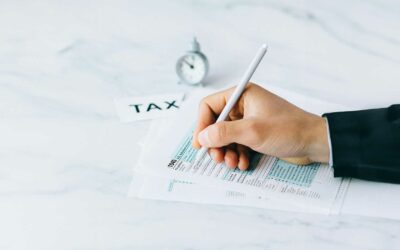Covid has still not gone away, but with vaccination the end of restrictions may be in sight and there are grounds for optimism for the future.
An economy that is booming as the recovery takes hold is certainly something to look forward to, but the financial effects of lockdown are with us now. The government has built up massive deficits while trying to mitigate the economic impact of the coronavirus pandemic on individuals and businesses.
At Continuum we are looking at the scale of the problem – whether it will mean a post Covid tax hike – and who may be left paying the bill for Covid.
How big is the problem?
Furlough payments and support for businesses, the cost of vaccination and propping up the NHS has meant huge increases in spending, at a time when the economy was at a virtual standstill for months at a time. The country has been left with a deficit of £355bn. This is around 17% of GDP.
Chancellor Rishi Sunak will need to find a way to balance the books, or at least a way to start repaying the huge deficit.
It looks as though he may have several options to call on.
The first is to grow the economy. The easing of restrictions is helping to deliver growth and the effects of Brexit may have been exaggerated.
The second is to allow inflation which will erode the size of the debt. Inflation is a problem for savers, and for those who must live on their savings, but it can be less so for those who are borrowing or investing. Wage inflation will have the added advantage of increasing tax revenues – which points to the third and perhaps most worrying option of all.
The third option is of course to increase tax.
The Chancellor has made it clear that he will not risk choking off the recovery by imposing new tax burdens now. In his Budget back in March he kept the Conservative party 2019 manifesto pledge not to raise income tax, national insurance or VAT rates. However, it is hard to believe that there will be no tax increases to help address the huge debt burden in the medium term.
The tax rise that nobody noticed
In fact, the Chancellor is already increasing tax. By announcing that he would freeze the thresholds at which the basic and higher rates of income tax are paid from April 2022 to April 2026, he has increased tax in real terms and been particularly clever in how he has done it. Allowances and tax thresholds are usually increased in line with inflation each year. By freezing them, he has ensured that the inflation which may be inevitable with the recovery works to increase the tax he rakes in, while not apparently increasing the rates of tax we pay.
The Office for Budget Responsibility (OBR) has calculated that freezing tax thresholds will raise £20bn of extra revenue over the next four years. But this still falls short of the £335 billion that the Chancellor needs to find. He may be planning to look elsewhere.
A raid on pensions?
Perhaps the biggest threat to your post covid tax bills could be through your pension plans.
If you are already drawing your pension, you may not need to worry. No Chancellor is going to antagonise a powerful lobbying group that numbers in the millions and has time on its hands. However, there may be a risk to those still building their pension pot.
The Treasury may be considering radical reform to the way it pays out tax relief on pension contributions. Currently tax relief is paid at a person’s marginal rate of income tax as an incentive to save money into a pension. This will mean basic rate taxpayers enjoy 20% tax relief, while higher rate taxpayers get a 40% boost to their pension savings.
The Chancellor is said to be considering limiting tax relief on pension contributions to a flat rate of 30%. This would actually be a boost for basic-rate taxpayers, who would gain additional tax relief.
This would affect nearly five million higher rate and top rate taxpayers who would need to pay substantially more to build the same level of pension pot.
Under the current model, a £10,000 pension saving would cost a 40% taxpayer just £6,000. Under a flat-rate 30% system every £10,000 saved into a pot would cost £7,000.
Is there any good news?
If you start considering the recent and potential tax changes now, you may be able to mitigate some of the adverse effects in the event of post covid tax hikes. Wealth planning and making full use of tax reliefs will be vital.
Book a free consultation
Preparing for economic upheavals needs expert help. You can get the help you need from the Continuum team by booking a free initial consultation.
The best way to prepare for a post covid tax environment is to act now and get expert help from the Continuum team.
The information contained in this article is based on the opinion of Continuum and does not constitute financial advice or a recommendation to suitable retirement strategy, you should seek independent financial advice before embarking on any course of action.
Levels and basis of reliefs from taxation are subject to change and depend upon your personal circumstances.
A pension is a long term investment. The fund value may fluctuate and can go down, which would have an impact on the level of pension benefits available. Pension income could also be affected by interest rates at the time benefits are taken.
The tax treatment of pensions in general and tax implications of pension withdrawals will be based on individual circumstances, tax legislation and regulation, which are subject to change in the future.
While Investing your capital is at risk.



